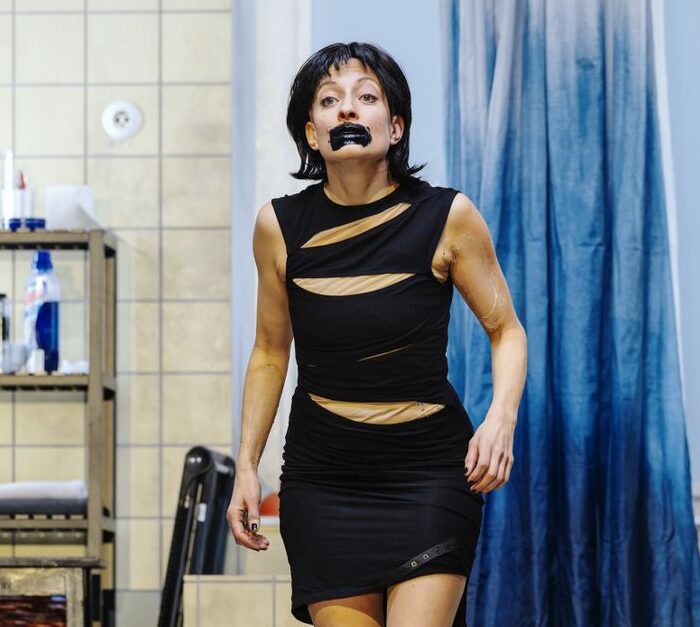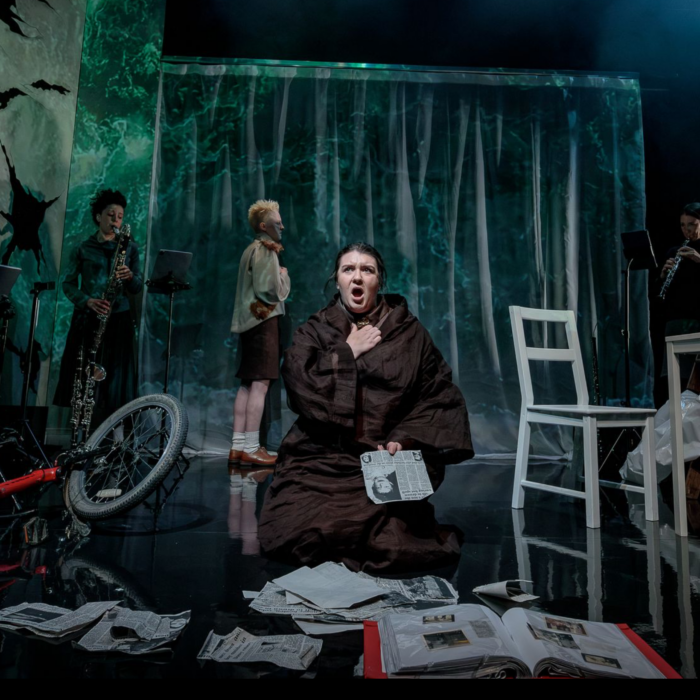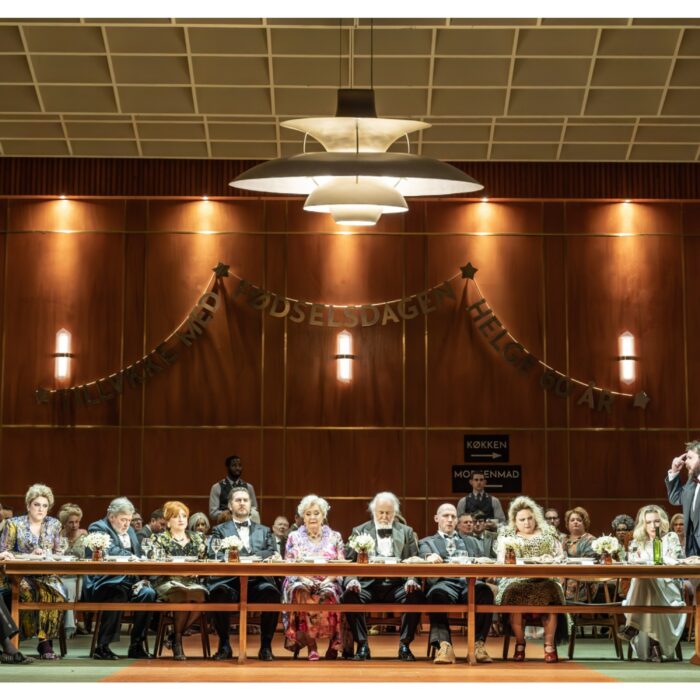
Opéra National de Paris 2024-25 Review: The Cunning Little Vixen
By João Marcos Copertino(Photo: Vincent Pontet)
Certainly a hidden gem of the mainstream operatic repertoire, Leoš Janáček’s “The Cunning Little Vixen” is one of the most lovable pieces of musical theater ever composed. Its lyrical music, melancholic charm, and even lack of dialogue make this opera hard to resist. Paris Opera’s revival of the work has all the elements needed to succeed: Nicky Rieti’s staging is as poetic and captivating as the opera itself, and the orchestra soars—especially the strings. Still, a certain sloppiness pervades this revival, which prevents it from reaching its full potential.
Production & Musical Details
Let’s start with the highlights. Rieti’s staging is undoubtedly a strength. At a time when aesthetic beauty is not guaranteed in the operatic landscape, Rieti blends modernity with a gorgeous selection of sets and lighting that evoke the works of Edward Hopper. The production’s greatest achievement is its seamless integration of Janáček’s celebration of nature with the encroaching elements of modernity, symbolized by the ever-present train tracks—a haunting reminder of a violated forest.
However, the presentation of these otherwise beautiful sets has not aged well. While I am often impressed by the backstage efforts of opera crews, this production left much to be desired. There were several mishaps in scenic staging, from poorly placed sunflowers in the first act to an unevenly laid snow carpet in the third. These details were noticeable not only to those in the front rows but even to my friends in the second balcony. Despite the breathtaking grand drape featuring Chagall-inspired illustrations of the opera, the scene changes were so noisy they became difficult to overlook.
Musically, the Paris Opera Orchestra performed above their already high standard, with the strings and even the brass sections in excellent form. However, under Juraj Valčuha’s baton, the performance occasionally lacked the dramatic sharpness that gives “The Cunning Little Vixen” its unique vitality. The interpretation leaned too heavily on cheerfulness, missing the angular intensity of the children’s choir and woodwinds that add depth and texture to Janáček’s score.
Vocal Highlights
Unfortunately, the vocal performances were also uneven. Despite the orchestra’s relatively moderate volume, much of the cast struggled to project, especially the higher-voiced female singers. While this might partly be a quirk of the Bastille Opera’s acoustics—where it’s often easier to hear singers from the second balcony than from the orchestra level—it is undeniably frustrating for the audience to strain when trying to hear voices meant to overwhelm and captivate.
The cunning protagonist, performed by the highly scenic Elena Tsallagova, is a familiar presence on the Parisian stage. Her Vixen is physically dynamic and particularly compelling in the pivotal third act. Vocally, her lyrical soprano shines in the upper range but lacks the vocal heft to make the role resonate fully in the Bastille’s challenging acoustics.
Paula Murrihy delivered an intriguing, scene-stealing portrayal of the Fox, especially in the second act, while Milan Siljanov, stepping in for the now Wotanic Iain Paterson, gave a solid performance as the Forester. Though he was effective throughout the first two acts, Siljanov truly came into his own in the final scene, where the absence of elaborate staging allowed his lyrical capabilities to take center stage.
Interestingly, the night’s standout vocal performance came from the opera’s most villainous character, the Poacher, portrayed by the exceptional Tadeáš Hoza. A rising talent, Hoza commanded the stage with a nuanced performance, making his character less repellent than usual. His confrontation with the Vixen was, in my view, the highlight of the evening.
“The Cunning Little Vixen” is a remarkable opera, even in less-than-optimal performances. Judgment on opening night was no doubt swayed by a less rehearsed cast and by some backstage carelessness, and this production still has a long run in which to tie up its loose threads; whatever one’s small reservations, how often can one experience such great music?


